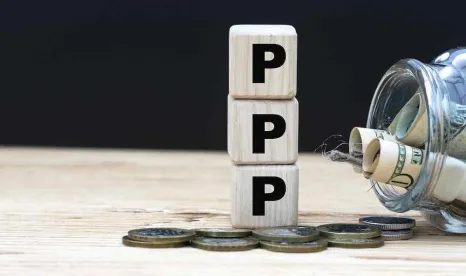A recent analysis of data released by the United States Small Business Administration (“SBA”) suggests that the vast majority of Paycheck Protection Program (“PPP”) loans extended to small businesses during the COVID-19 pandemic have been forgiven. While positive, this news is cold comfort to PPP borrowers for whom forgiveness was denied, or, as we addressed previously, whose lenders required them to apply for forgiveness in amounts less than the full amount of their PPP loans. PPP borrowers can apply for forgiveness of their PPP loans any time up until the loan maturity date (2025 in many cases), and borrowers continue to receive denials of forgiveness for both first- and second-draw PPP loans. As a result, the PPP appeal process remains as important today as at its inception.
There are multiple reasons the SBA might deny forgiveness of a PPP loan, from the borrower not being eligible for the loan in the first instance to the borrower using the loan proceeds for unapproved purposes. However, forgiveness of some PPP loans has been denied based on what might otherwise be described as a miscommunication. For example, forgiveness of some loans has been denied because the SBA requested supporting documentation, and the documentation was never provided. When investigated, it turns out that the lender either (a) never communicated the documentation request from the SBA to the borrower or (b) never forwarded the documents provided by the borrower to the SBA. In these and similar instances where documents and information get “lost in translation” between the borrower, the lender, and the SBA, filing an appeal with the SBA’s Office of Hearings and Appeals (“OHA”) may be the only way to rectify the situation. Once an appeal is filed, the SBA will be required to respond, and conduct an individualized review of the PPP loan at issue. Additionally, filing an appeal with the OHA is critical because it extends the loan deferment period until a final decision is issued. See 13 CFR § 134.1202(b).
Borrowers should also understand that filing an appeal does not necessarily mean that an OHA judge is going to issue a final decision affirming or reversing the SBA’s forgiveness determination. Once an appeal is filed, the SBA may look at the loan in more detail and decide to reconsider its position, in some cases granting the loan forgiveness the borrower was seeking from the beginning—clearly a positive result for the borrower. When this happens, the parties can agree to dismiss the appeal. This demonstrates that filing an appeal does not necessarily terminate the communication between the SBA and the borrower. In many cases, it may actually be the beginning of the communication—without the lender acting as intermediary—and can lead to an amicable resolution of the forgiveness dispute.
Alternatively, even if the SBA maintains its position on appeal that forgiveness should be denied, it is still within the OHA judge’s discretion to remand the PPP loan back to the SBA for further review, outside of the administrative appeals process. See 13 CFR § 134.1212. This could happen, for example, if the borrower presents issues and documentation on appeal that the OHA judge determines the SBA should consider further in its review of the borrower’s forgiveness application before coming to a final loan review decision.
The importance of the PPP appeal process cannot be overstated. It serves to protect the rights of borrowers and can provide an opportunity to interface with the SBA directly rather than through a lender. It therefore increases the chances of effectively communicating a borrower’s positions and concerns and can result in either a favorable decision from an OHA judge on the merits, a direction for the SBA to review the loan and forgiveness application, or an amicable resolution of the forgiveness dispute with the SBA.



 />i
/>i
